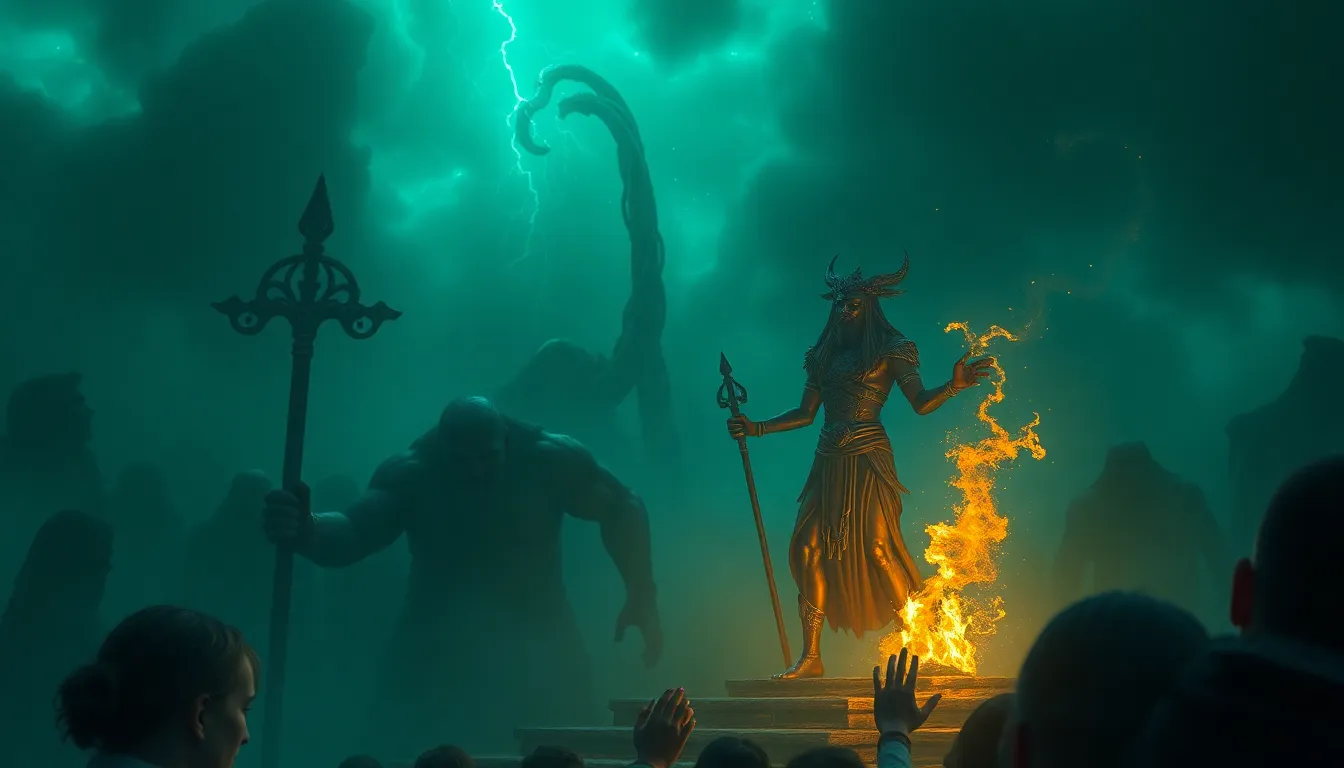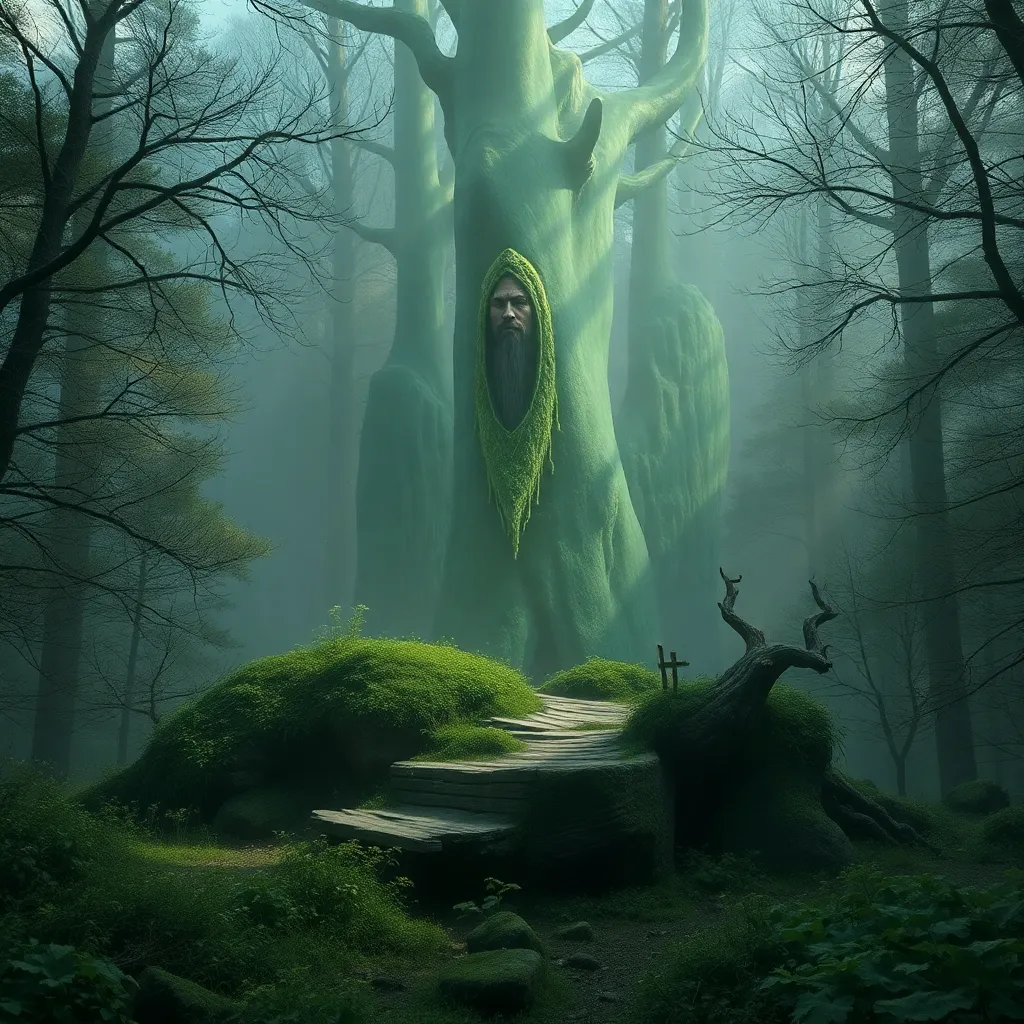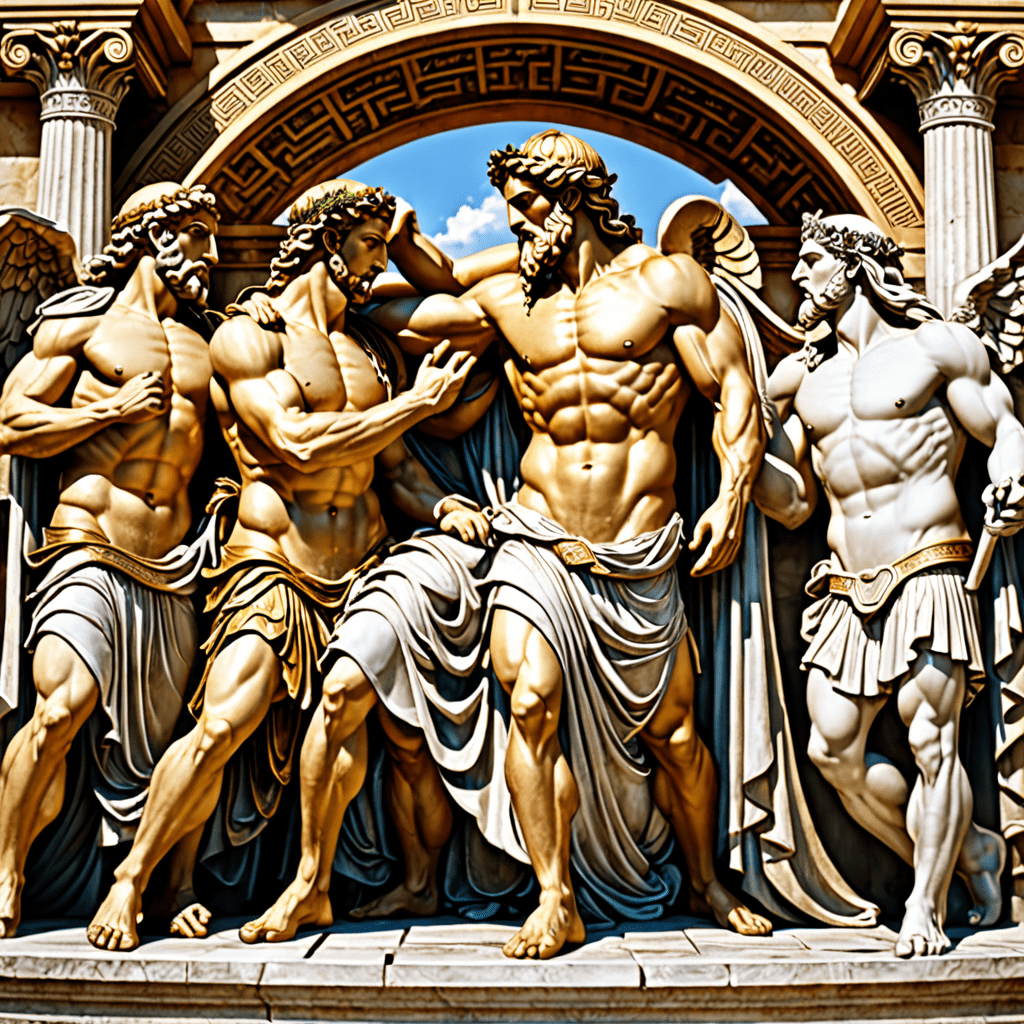The Most Captivating Myths of Ancient Deities: Tales to Remember
Introduction to Ancient Deities
Deities in ancient cultures refer to the gods and goddesses that were worshipped and revered by various civilizations throughout history. These divine figures often embodied the values, fears, and aspirations of the societies that created them. Myths surrounding these deities served not only as fascinating stories but also as foundational narratives that shaped societal beliefs and cultural practices.
Mythology plays a crucial role in understanding human history, as it reflects the complex relationship between people and the divine. This article explores some of the most captivating myths of ancient deities from different cultures, revealing the timeless tales that continue to inspire and educate us today.
The Role of Myths in Ancient Civilizations
Myths served as cultural narratives that helped ancient civilizations make sense of their world. They provided explanations for natural phenomena, such as thunderstorms, floods, and the changing seasons, often attributing these events to the actions of deities.
- Explaining Natural Phenomena: Myths often personified natural forces, illustrating how gods influenced the environment.
- Understanding Human Behavior: Stories of gods and goddesses demonstrated human emotions and moral dilemmas, allowing societies to reflect on their own behaviors.
- Educational and Moral Functions: Many myths contained moral lessons, teaching values such as bravery, loyalty, and justice.
Through these narratives, myths served to educate, entertain, and instill a sense of community among people, reinforcing cultural identity across generations.
Greek Mythology: The Pantheon of Gods and Their Legends
Greek mythology is one of the most well-known mythological systems, featuring a pantheon of powerful gods and goddesses who ruled over various aspects of life and nature. Key deities include:
- Zeus: The king of the gods, associated with the sky and thunder.
- Hera: The goddess of marriage and family, Zeus’s wife.
- Poseidon: The god of the sea, known for his temperamental nature.
Some of the most notable myths from Greek mythology include:
- The Twelve Labors of Heracles: A series of tasks that Heracles, a demigod, had to complete as penance.
- The Trojan War: A legendary conflict sparked by a dispute among the goddesses, leading to the famous siege of Troy.
The influence of Greek mythology on Western literature and art is profound, inspiring countless works from ancient times to the present day.
Norse Mythology: The Tales of Asgard and Beyond
Norse mythology encompasses the beliefs and legends of the Scandinavian people, featuring a rich tapestry of gods and heroes. Key figures include:
- Odin: The chief god, associated with wisdom and war.
- Thor: The god of thunder, known for his strength and loyalty.
- Loki: A trickster god whose actions often led to chaos.
Fascinating myths include:
- Ragnarok: The prophesied end of the world, culminating in a great battle among the gods.
- The Creation of the World: A tale involving the death of the primordial giant Ymir, whose body became the earth.
Norse mythology continues to have a legacy in modern popular culture, influencing literature, films, and television shows.
Egyptian Mythology: Gods of the Afterlife and Beyond
Egyptian mythology is rich with deities that governed various aspects of life, death, and the afterlife. Prominent deities include:
- Ra: The sun god, often depicted with a falcon head.
- Osiris: The god of the afterlife, associated with resurrection and fertility.
- Isis: The goddess of magic and motherhood, revered for her protective nature.
Captivating myths include:
- The Journey of the Sun God: A daily voyage across the sky, representing life and renewal.
- The Osiris Myth: A story of death, resurrection, and the eternal struggle between good and evil.
The impact of Egyptian mythology is evident in their architecture, such as the pyramids, and their elaborate burial practices, which reflect their beliefs in the afterlife.
Hindu Mythology: The Epic Narratives of Deities
Hindu mythology features a multitude of gods and goddesses, each with unique attributes and stories. Major deities include:
- Vishnu: The preserver of the universe, known for his avatars.
- Shiva: The destroyer and transformer, embodying both creation and destruction.
- Durga: The warrior goddess, symbolizing the victory of good over evil.
Key myths include:
- The Ramayana: The epic tale of Prince Rama, his wife Sita, and their battle against the demon king Ravana.
- The Mahabharata: A sprawling narrative about the Kurukshetra War and the moral dilemmas faced by its characters.
These tales continue to hold relevance in contemporary Hindu culture, influencing festivals, rituals, and artistic expressions.
Mesoamerican Mythology: The Gods of the Ancient Americas
Mesoamerican mythology encompasses the rich traditions of the Aztec and Maya civilizations, featuring a diverse array of deities. Notable figures include:
- Quetzalcoatl: The feathered serpent god associated with wind and wisdom.
- Tezcatlipoca: The god of night and sorcery, often in opposition to Quetzalcoatl.
Notable myths include:
- The Creation Myths of the Popol Vuh: The Mayan creation story, detailing the origins of humanity and the gods’ interactions.
- The Legend of Quetzalcoatl: A narrative of creation, destruction, and the promise of renewal.
Mesoamerican mythology continues to influence modern identity and spirituality, resonating with themes of life, death, and rebirth.
Celtic Mythology: The Enchanting Tales of the Tuatha Dé Danann
Celtic mythology is rich with enchanting tales of gods, goddesses, and legendary heroes. The Tuatha Dé Danann are among the most significant deities, embodying various aspects of life and nature.
- Brigid: The goddess of poetry, healing, and fertility.
- Cernunnos: The horned god associated with nature and the wilderness.
Captivating myths include:
- The Stories of Cú Chulainn: The legendary hero known for his unparalleled combat skills and tragic fate.
- The Táin Bó Cúailnge: An epic tale of conflict and heroism surrounding the theft of a prized bull.
Celtic mythology has a lasting legacy, influencing folklore, literature, and contemporary spiritual practices.
Conclusion
The myths of ancient deities from various cultures provide a glimpse into the human experience, reflecting our deepest fears, aspirations, and values. These captivating tales continue to resonate, offering timeless lessons and insights that shape our understanding of the world. As we explore and remember these stories, we not only honor the past but also enrich our present and future.



